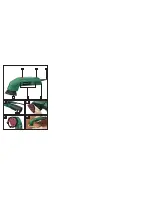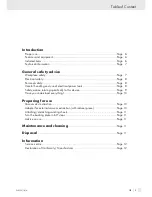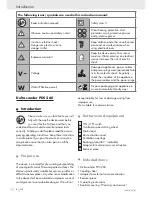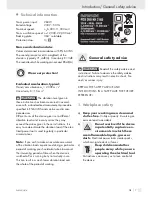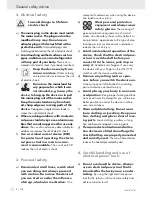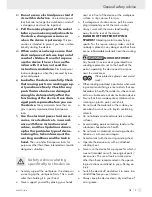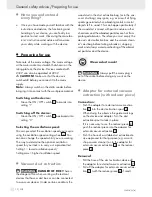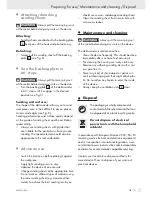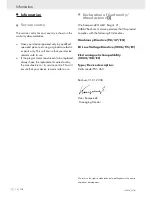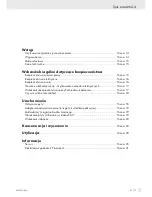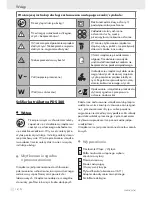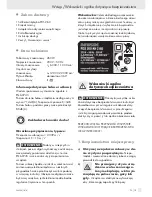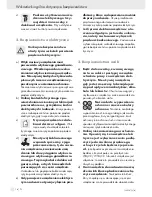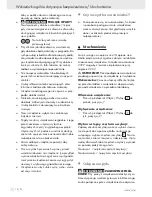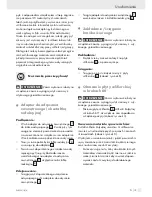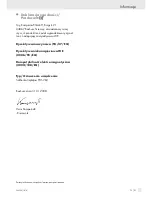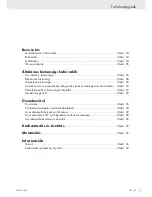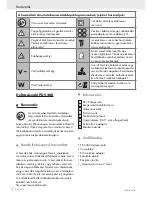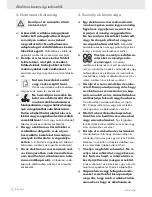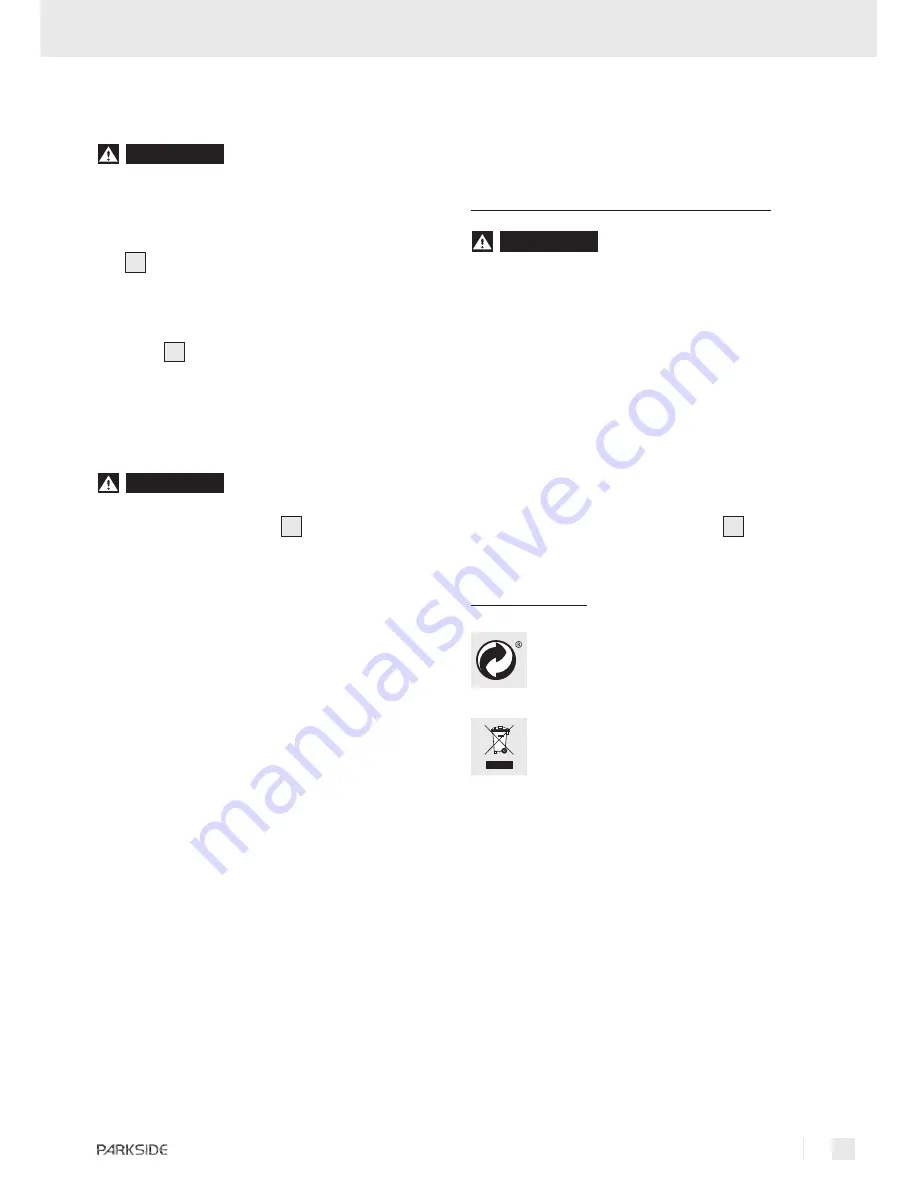
11
GB
Q
attaching / detaching
sanding sheets
WarNING!
Always pull the mains plug is out
of the socket before doing any work on the device.
attaching:
j
Sanding sheets are attached to the backing plate
6
by means of the hook and pile fastening.
Detaching:
j
Simply pull the sanding sheet off the backing
plate
6
(see Fig. B).
Q
Turn the backing plate in
60° steps
WarNING!
Always pull the mains plug out
of the socket before doing any work on the device.
j
Turn the backing plate
6
of the delta sander
in 60° steps until it engages in the desired
position (see Fig. C).
Sanding and surfaces:
The shape of the delta sander allows you to sand
workpieces even in their difficult to access places,
corners and edges (see Fig. D).
Sanding performance and surface quality depend
on the grade of sanding sheet and the oscillation
speed setting.
j
Always use sanding sheets with grades that
are suitable for the particular surface you are
sanding. The speed selected should also be
appropriate to the task undertaken.
Q
advice on use
j
Switch the device on before placing it against
the workpiece.
j
Apply light sanding pressure only.
j
Advance the device at an even rate.
j
Change sanding sheets at the appropriate time.
j
Do not work on different types of material using
the same sanding sheet (e.g. wood and then
metal). To achieve the best sanding results you
should use unworn, undamaged sanding sheets.
j
Clean the sanding sheet from time to time with
a vacuum cleaner.
Q
Maintenance and cleaning
WarNING!
Always pull the mains plug out
of the socket before doing any work on the device.
The delta sander is maintenance-free.
j
Clean the device frequently. This should be done
immediately after you have finished using it.
j
For cleaning the housing use a dry cloth only.
j
Remove any adhering sanding dust with a nar-
row paint brush.
j
Never any kind of sharp object or petrol, sol-
vents or cleaning agents that might attack plas-
tic. Do not allow any liquids to enter the inside
of the device.
j
Always keep the ventilation slots
5
clear.
Q
Disposal
The packaging is wholly composed of
environmentally-friendly materials that can
be disposed of at a local recycling centre.
Do not dispose of electrical
power tools with the household
rubbish!
In accordance with European Directive 2002 / 96 / EC
(covering waste electrical and electronic equipment)
and its transposition into national legislation, worn
out electrical power tools must be collected separately
and taken for environmentally compatible recycling.
Contact your local refuse disposal authority for
more details of how to dispose of your worn out
electrical devices.
Preparing for use / Maintenance and cleaning / Disposal
Summary of Contents for PDS 260 - 4
Page 2: ...A B C D 60 6 0 6 0 6 0 6 0 60 2 3 1 4 5 6 8 7...
Page 20: ...22...


